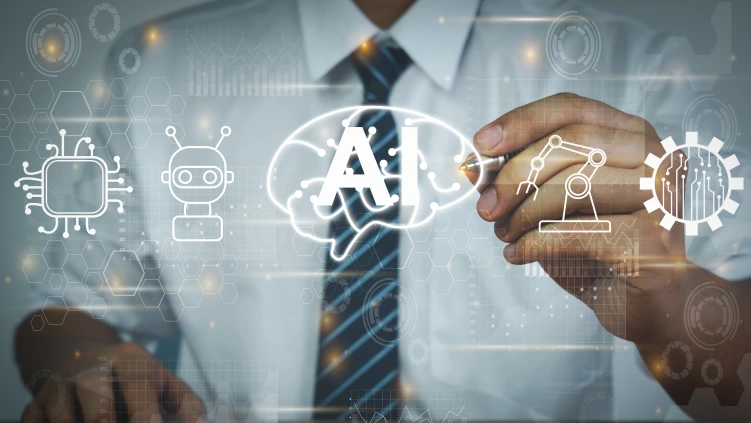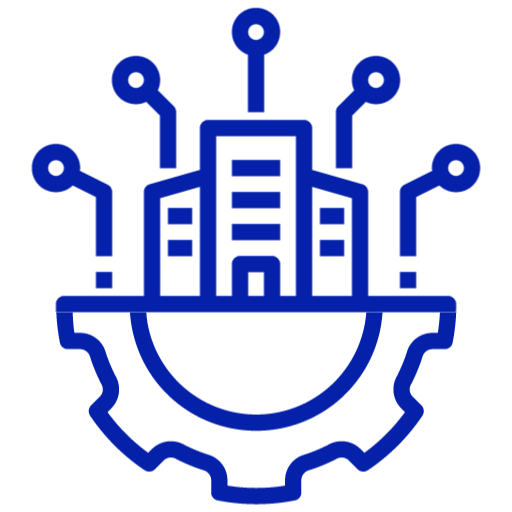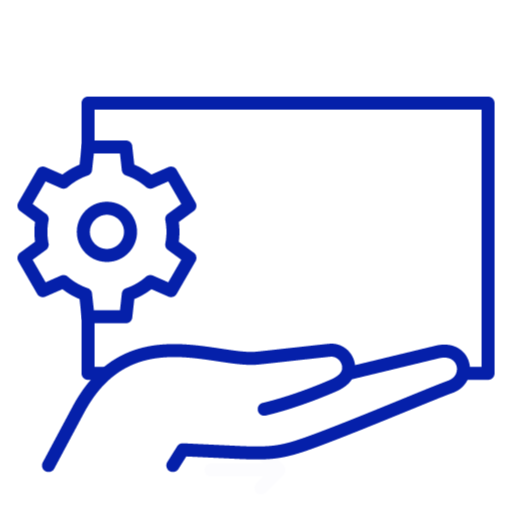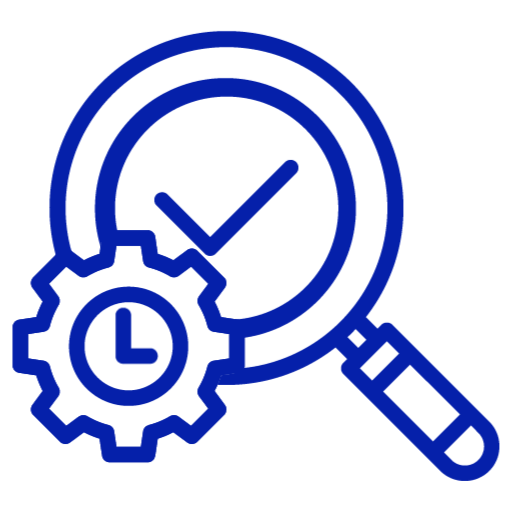Integration of AI & ML in Quality Management Systems
There is no doubt that we have entered the new industrial revolution, commonly referred to as Industry 4.0. Digitalization is transforming the way products are being manufactured, controlled, distributed and improved upon.
For years though, pharmaceutical companies were lagging behind due to the high cost of process shifting imposed by stringent GMP compliance requirements by US FDA and MHRA, lengthy software implementation timelines and high validation cost . Reasonably so, as caution is necessary before adopting any new technology in such a delicate field.
However, the pandemic has forced the entire Pharma industry to kick up a gear. Rapid increase in demand especially for biopharmaceutical products and medical devices over the past couple of years revealed inabilities of traditional setups to adapt to sudden changes in market requirements.
Today organizations are spending a good amount of money on process deviations. An average cost of deviation (start to end) will cost nearly USD 40000 to 200000 per deviation. There are certain steps in deviations that can be digitalized with the AI/ML technologies, resulting in reduced cost of deviations by 60%.
As a result, pharmaceutical industry has been propelled into Pharma 4.0, fueled by sophisticated technological solutions that significantly improve efficiency of an average manufacturing unit.
How Artificial Intelligence and Machine Learning can be Integrated into Quality Management
A typical pharmaceutical plant collects a remarkable amount of data as part of the quality assurance process. By having to document every part of the process to ensure quality tracking and error traceability, even a mid-sized manufacturing facility’s QMS software will collect enough data in one year to overwhelm an average server. Traditional means of storing data on local servers quickly become cumbersome, expensive and difficult to manage, as they require almost constant investments into equipment maintenance and capacity increases.
Storing all the information is only part of the problem, solvable by relying on cloud services. An even bigger issue lies in the inefficiency of such a practice. Mountains of data remain unanalyzed, unused and practically forgotten. The only purpose becomes compliance, missing out on valuable opportunities to spot mistakes as they happen and gather valuable insight through in-depth analysis.
The amount of stored data only continues to grow with every new device and process being introduced into the system. Unless indexed and stored in such a way to allow effective analysis, both in real time and retroactively, it is essentially wasted.
Modern technology aims to solve this problem and offer opportunity for continuous improvement. Big data, artificial intelligence (AI), machine learning (ML) and deep learning (DL) are tools that turn these mountains of unusable pieces of information into valuable pools of data, insights and predictions. Data is practically useless – knowledge is what is valuable. These tools do exactly that: turn data into knowledge.
The traditional means of identifying, reporting and fixing problems are highly inefficient compared to possibilities offered by AI. 21 CFR (part 11) states that every pharmaceutical manufacturer is obliged to establish procedures to implement corrective and preventive action in case of errors (the CAPA system). In other words, to identify the underlying cause of the detected issue, resolve it and prevent it from happening again, as well as to avoid such problems in the first place. The usual way of handling errors is to manually maintain the CAPA register, monitor and track the actions taken, all the while relying on the employees to remain vigilant in reviewing logs, ensuring consistency in following procedures and being as productive as possible to respect the requested deadlines.
With AI-based solutions, CAPA is automatically initiated as soon as an error is registered, therefore removing the need for manual labor and inconsistencies due to the human factor. The automated process issues a notice that CAPA was activated, appropriate corrective actions are automatically applied to the identified deviation, and previous preventive actions are checked for similar deviations to strengthen the effectiveness of the CAPA process.
Therefore, any issues with reliability, defect tracking software or promptness of response have been removed.
Benefits of Artificial Intelligence and Machine Learning in Quality Management
To briefly define these tools, artificial intelligence uses human-like processes for planning, analyzing and problem solving. Its subsets are machine learning and deep learning. Machine learning performs endless calculations of the collected data to suggest possible solutions to the imposed problem, using systems modeled to resemble a human brain. Deep learning uses algorithms to process vast amounts of data through many layers in order to transform it into usable chunks of information.
All of these processes can be done quickly, even on an extremely large amount of data. As a result, these technologies produce meaningful insights that can solve problems, predict likely scenarios, or serve to improve the manufacturing processes. And they do it promptly, practically and without prohibiting costs. Furthermore, there is no need for previous categorization or complicated data integration. On the contrary – AI performs better when data is unstructured, even when it is collected from different sources and in various formats.
This greatly simplifies the procedure of gathering data from different parts of the manufacturing process, from various devices and systems, even from separate departments, without having to create uniform reports or formatted data sheets. Raw data is being indexed, stored and then quickly analyzed whenever the need arises, thus significantly improving the data analytics in QMS.
How can Machine Learning be used in Quality Management Processes?
As an example, procedures for handling customer complaints are defined as part of the Good Manufacturing Practice for the pharmaceutical industry. Since these usually relate to substandard medicines or medical devices, they do need to be addresses immediately and through an effective course of action.
Implementation of machine learning through AI allows to create a unified, automatic process of registering and acting upon these events. Rather than relying on several departments operating independently on limited data, an automated solution provides a prompt reaction with real-time tracking of a complaint. The issue is resolved through effective corrections and if necessary, the complaint can be automatically escalated if it turns into an adverse situation.
Furthermore, based on the previous Out-of-trend (OOT) and Out-of-specification (OOS) results the software is able to predict the tentative values that can be raised for specific products before they get tested.
The decision making for repeated deviations can be digitalized with AI/ML.
Change control management can be simplified by minimizing communication with auto-definition of the impacts and task assignments.
Market complaints can be minimized by applying the ML on the existing complaint data, analyzing the past root causes and applying them before a batch is released to the market.
By choosing an AI-driven solution that meets all of the necessary regulatory requirements, companies can avoid costly mistakes as well as public relation disasters due to a slow response to a problem.
Are there any potential risks of using AI and Machine Learning in Quality Management Systems?
Obviously, a question of reliability and compliance of these systems must be posed, as these technologies offer possibilities for improving GxP on the spot. If we take into account how long it takes to digitally transform an average manufacturing setup, it is understandable that there would be concerns about implementing AI and ML in QMS without seriously disrupting existing processes.
Challenges with integrating Artificial Intelligence and Machine Learning into Quality Management
The organizations do not need to switch to an AI-based quality management system. Instead they can apply the AI/ML concepts on top of the existing QMS systems data. There are tested and proven practices that can ensure that the transition into the digitalized environment will be as seamless as possible, while reaping all the benefits that these sophisticated tools can offer.
Aside from lack of knowledge and capacity to handle such a switch on their own, most plants are faced with long and resource-consuming processes of new technology implementation. By choosing low code solutions, digitalization can be implemented quickly, efficiently and without the need for extensive changes in everyday procedures.
How can businesses ensure that they are getting the most out of AI and Machine Learning regarding Quality Management?
Plants should rely on SaaS (Software as a Service) providers that have experience and expertise in implementing AI into (bio)pharmaceutical setups. The supplier takes over the responsibility of implementing the technology and becomes a trusted partner that will guide the transition from beginning to end.
Future of Quality Management with the Integration of Artificial Intelligence and Machine Learning
Artificial intelligence is undoubtedly a valuable asset that will most likely remain on the forefront of digitalization, guiding the pharmaceutical industry into the 4.0 future. GMP standards implementation in compliance with US FDA, MHRA and other regulatory bodies, current data collection and processing makes pharmaceutical industry rigid, reactive instead of proactive, and slow. Introducing new technologies into the existing practices will also introduce the ability to predict possibilities and resolve issues before they occur, improve processes continually with verification following alongside of it, and enabling more agile adaptability to the market.
Even though Pharma is one of the most controlled industries in the world, mistakes still happen and recalls are necessary. By introducing AI into the industry we can expect for quality control to be improved and brought into real time, to remove the need for recalls and actions further down the line, as the products leave the production facility. The future of quality assurance lies in AI and it’s coming to Pharma, one digitalized plant at the time.



























